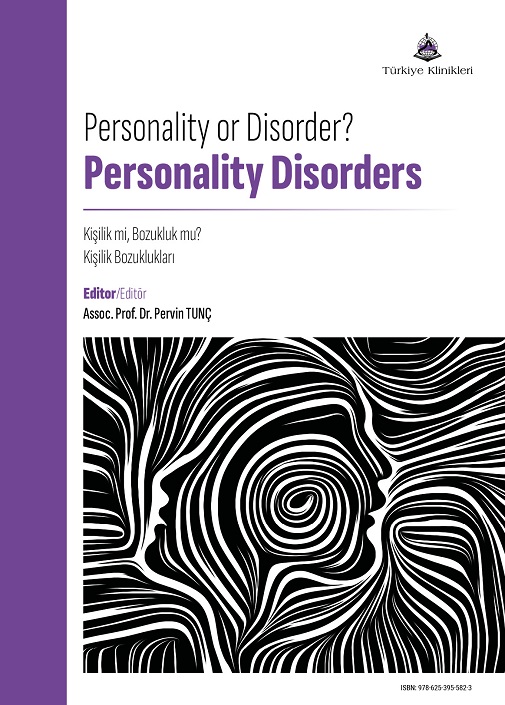The symptoms of personality disorders are pervasive and enduring, often persisting throughout a lifetime and across generations. In the past, individuals with personality disorders were perceived as less deserving of mental health care due to their manipulative and attention-seeking behaviors. Furthermore, personality disorders were long stigmatized as untreatable and misleadingly equated with dangerousness. Today, when we focus on mental health services, we observe that clinicians often lack sufficient training or resources regarding personality disorders, or perhaps for these reasons, they may be reluctant to work in this field.
On the other hand, when we examine the prevalence and increasing rates of personality disorders in societies, there are estimates suggesting a rising trend. For instance, it has been found that approximately one in ten people in the United States meets the criteria for a personality disorder. Additionally, nearly half of those receiving mental health treatment exhibit impairments in personality functioning severe enough to warrant a personality disorder diagnosis. Although not yet fully documented through empirical findings, clinical practice clearly reveals an increasing number of children, adolescents, and adults presenting with personality disorder symptoms. It is also striking that increasingly severe cases are being encountered in clinical settings. This raises the question: Are we facing a mental health epidemic? If clinical, sociocultural, and political indicators are correct, we may be entering an unprecedented period of individual and societal pathology associated with personality disorders.
With the depletion of social resources, more families are experiencing challenging economic conditions and poverty. Consequently, the instability of family structures and child care may increase the likelihood of a personality disorder epidemic. Individuals who lack or are entirely deprived of supportive social networks-such as family, friends, schools, and social institutions-are at a higher risk of developing personality disorders, feeling rootless, aimless, and adrift. This is especially true for already marginalized groups due to socioeconomic disadvantages. Therefore, we must acknowledge that we are facing the societal, individual, and clinical consequences of personality disorders and urgently reorganize preventive and therapeutic mental health services.
In recent years, numerous clinical interventions and studies have demonstrated that individuals diagnosed with personality disorders can benefit from mental health treatments. Advances in theories explaining personality development, a greater understanding of psychopathology, and accumulated clinical experience have led to significant progress in new treatment methods for those suffering from personality disorders. However, making cost-effective treatment modalities accessible to everyone remains a significant challenge.
Guided by psychodynamic theory, this book embarks on a journey into the depths of personality disorders. It explores the origins and manifestations of these disorders by examining how early life experiences, unconscious conflicts, and defense mechanisms contribute to the development and persistence of maladaptive behavior patterns. Furthermore, by fostering a deep and empathetic understanding of the inner worlds of individuals with personality disorders, this book aims to encourage more effective and compassionate care.
We hope this book serves as a valuable resource for clinicians, inspires further research, and illuminates the path to healing and transformation. Additionally, we wish for it to be a meaningful contribution to supporting the healthy personality development of children and promoting a better societal system.
I sincerely thank my dear colleagues who contributed to this book for their efforts and dedication.
Assoc. Prof. Dr. Pervin TUNÇ
Editor
İstinye University Faculty of Humanities and Social Sciences, Department of Psychology, İstanbul, Türkiye
Bölümler
Understanding Paranoid Personality Disorder According to Psychodynamic Theory
Pervin TUNÇ
Schizoid Personality Disorder
Nurhan EREN
Schizotypal Personality Disorder
Zeynep TEKKUŞ SET
Antisocial Personality Disorder
Ezgi ILDIRIM, Hanife Başak ALTUNBEK
Borderline Personality Disorder
Zeynep ANAFOROĞLU BIKMAZ
Histrionic Personality Disorder
Gizem ATEŞ ÖZKAN, Melek ÖZDEN
Narcissistic Personality Disorder
Hakan KIZILTAN
Avoidant Personality Disorder
Tubanur BAYRAM KUZGUN
Dependent Personality Disorder
Barışhan ERDOĞAN
Obsessive-Compulsive Personality Disorder
Buket ÜNVER


